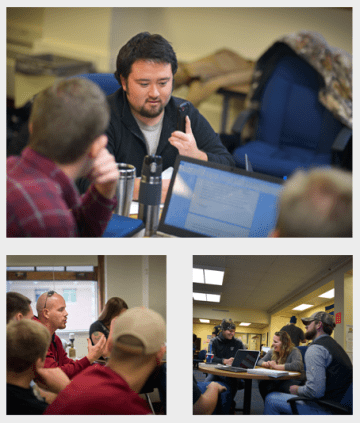MSU debuts Web page for veterans
Tuesday Nov. 11th, 2014
Montana State University has debuted a website directed at veterans. The site, which provides a full listing of services and resources at MSU for veterans utilizing an attractive multi-media format, may be found at: http://www.montana.edu/veteran/.
“We’re pleased with the website because not only will it reach out a lot more veterans, providing essential information in one place,” said Brenda York, director of MSU’s Office of Disability, Re-Entry and Veteran Services. “It is also a beautiful symbol of how MSU embraces veterans’ attendance at the university.”
The new website, which is a part of a recent overall redesign of MSU’s website, includes videos, interviews and information welcoming to veterans. Four videos are embedded in the page, featuring a welcome from MSU President Cruzado, interviews from MSU veterans discussing veteran support services, academics and life in Bozeman. The page was designed and produced in-house by MSU University Communications.

“It is essential that the Web presence of MSU’s Veteran Services reflects the quality of their service and the importance of supporting veteran students in succeeding at Montana State University. This new website does that,” said Jake Dolan, director of MSU Web and Digital Communications.
MSU has been designated several times by several agencies as a veteran-friendly institution. York says there are about 589 veterans enrolled at MSU, a number that has risen steadily in the last five years. In that time, MSU instituted several key services aimed at serving veterans, including opening a new veterans’ center in the basement of the SUB about five years ago.
York said MSU is proud of the reputation that it has earned as one of the most veteran-friendly campuses in the country.
“We owe it to veterans to provide them with a quality education and place to come after service,” York said. She adds that veterans are an asset to the student body at large, providing diversity that enriches the student body.
“Their experiences also enable them to provide leadership and share cultural experiences from their service,” York said. “The entire campus benefits.”
| Tweet |